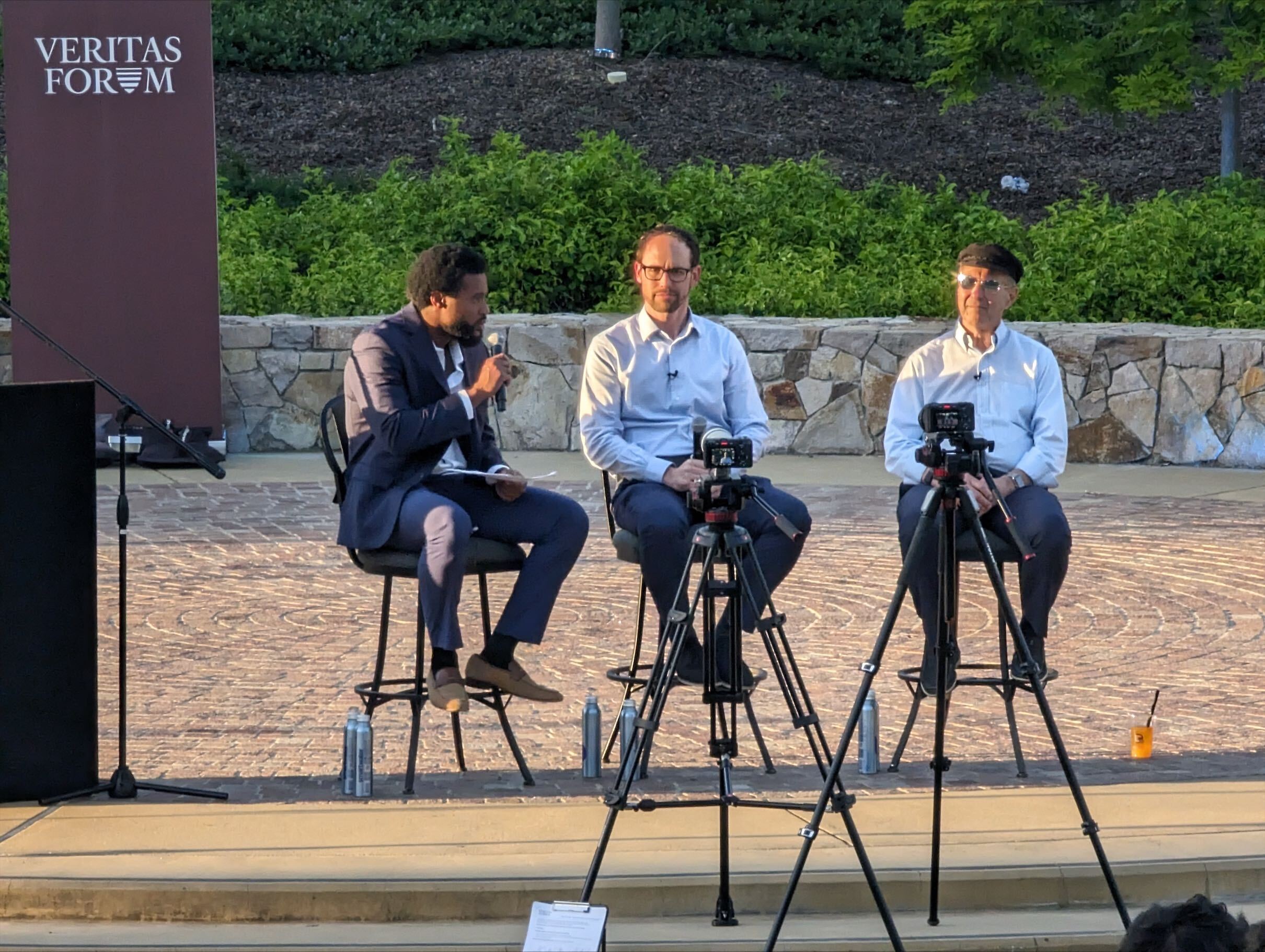Students and community members gathered on blankets at Meyer Green on a warm Thursday evening last week, hoping to find an answer to one of life’s most important questions: What is happiness? Most importantly, is happiness an illusion and, if not, where can we find it?
The event, organized by the Veritas Forum, a Christian student organization whose goal is to “invite university communities to dialogue with respect and curiosity about ideas that shape our lives,” featured David Spiegel and David Carreon, both psychiatrists. Spiegel is a current and Carreon is a former professor at the School of Medicine. The discussion, moderated by George Muirhead J.D. ’24, focused on happiness, mental health and the search for a sense of contentment and satisfaction in one’s own life.
“Veritas is a Christian club; however, we want to engage in dialogue with a variety of worldviews and encourage anyone to attend these large forums,” said Zara Thomas ’26, one of the organizers of the event.
When asked about the definition of happiness, Carreon described preferring to break the abstract concept into three dimensions. “Happiness” as the fleeting state of feeling good, “flourishing” as well-being due to meaningful and ethical work and relationships and “blessedness” as happiness beyond simply circumstantial influences.
Carreon said “blessedness” was a feeling of happiness that could be achieved even in dire circumstances. He emphasized that happiness should not be limited to only a reflection of good circumstances, but more deeply seeded.
Emphasizing Carreon’s focus on how individuals reflect on their circumstances, Spiegel said that happiness depends largely on one’s perception of the world and, more importantly, oneself. He invoked the philosopher Søren Kierkegaard’s research — “slipping into thinghood,” often resulted in a loss of happiness due to treating ourselves and others as objects rather than as dynamic beings, Carreon said.
“We are not an ‘it,’” Spiegel said, emphasizing that individuals should not let the “presumptions of who we are impair our capacity to enrich the experiences we have.”
Spiegel illustrated this with an example of how he coached the Stanford women’s swimming team to swim faster in their meets by shifting their focus from beating the competitors in the next lane to helping their bodies perform their best. The process of fully engaging with and experiencing activities is crucial to finding happiness, he said.
Turning to the popular topic of the potential for hypnosis to treat depression and other behavioral or performance issues, Spiegel clarified that hypnosis often involves gaining control of one’s senses rather than losing them. Renowned for his research into therapeutic hypnosis and featured on multiple YouTube videos and the Huberman Lab podcast, Spiegel discussed the differences between hypnosis and meditation, emphasizing the critical role of focused attention in both practices.
Veritas Forum member and discussion moderator, Xander Russell ’26 said he thought this event was a valuable contribution to a campus-wide discussion about mental health. “I think mental health is a very important facet of campus life, and I think students benefit from listening to different perspectives on happiness,” he said.
Henry Wang ’25, initially attended the event for the free boba but also found it to be a valuable experience. “It was a good opportunity to engage in dialogue with people I wouldn’t normally run into,” he remarked.
Attendee Audrey Jones ’27 appreciated the forum’s inclusive approach. “They seem like they try to showcase different viewpoints as opposed to one perspective, and I really appreciate that,” she said.
Jones also mentioned how the event encouraged her to focus on activities that bring her joy: “Especially being at Stanford with so many opportunities, it’s important to approach these opportunities in a way that brings the most meaning into my life.”

